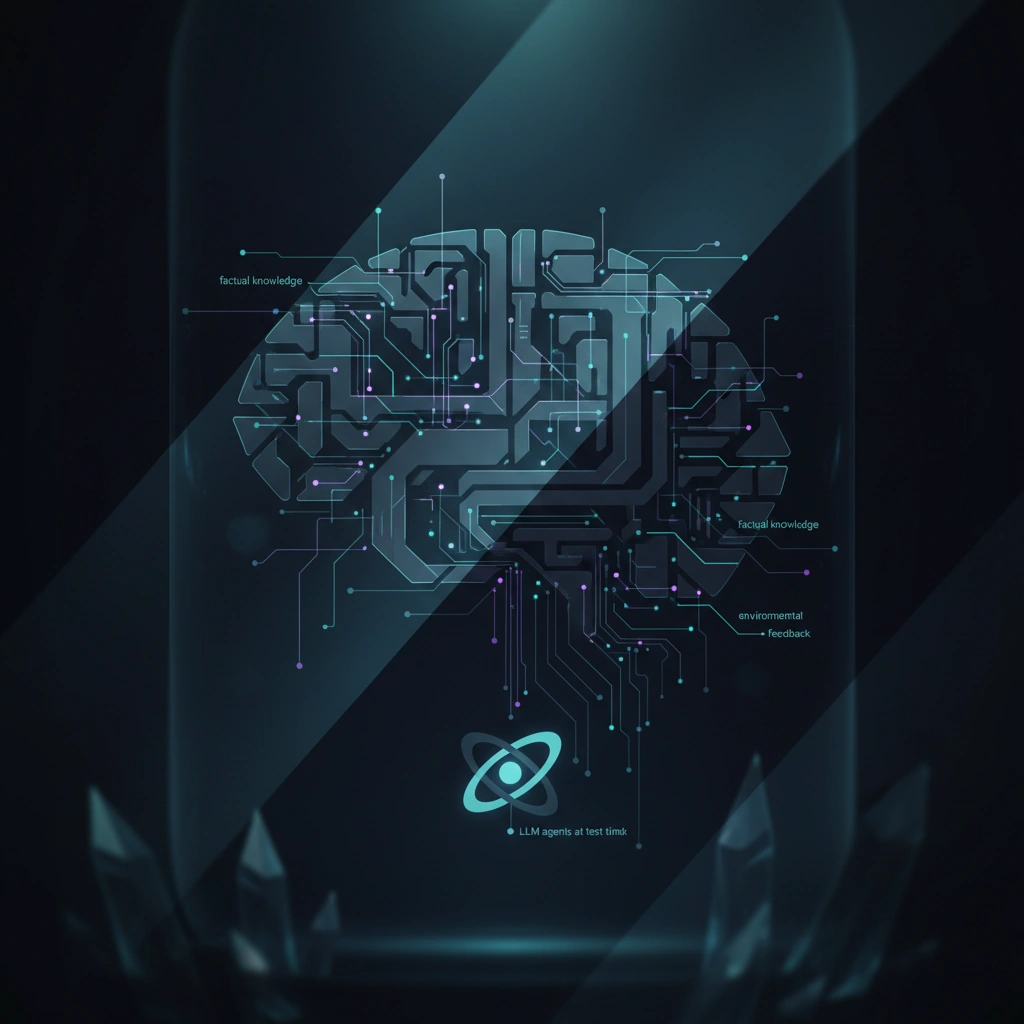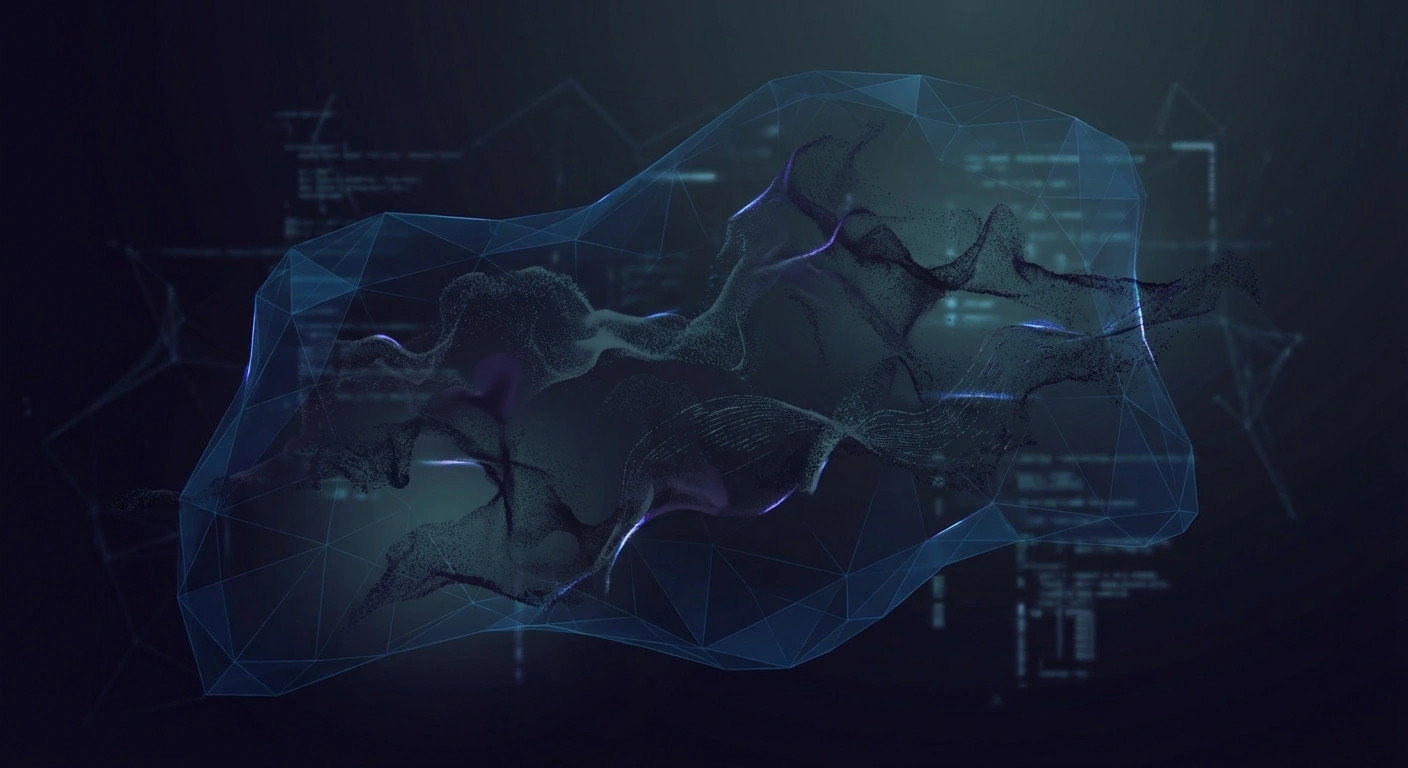How LLM Agents Learn to Adapt at Test Time
New research introduces grounded test-time adaptation for LLM agents, enabling dynamic learning during deployment by anchoring adaptations to factual knowledge and environmental feedback.

Large language model agents face a fundamental challenge: how to adapt and improve their performance in real-world environments without compromising accuracy or hallucinating information. A new research paper introduces grounded test-time adaptation (GTTA), a framework that enables LLM agents to learn dynamically during deployment while staying anchored to factual knowledge.
The Test-Time Adaptation Problem
Traditional machine learning models are trained once and deployed without further learning. However, LLM agents operating in complex environments—from customer service bots to research assistants—encounter scenarios that differ from their training data. Test-time adaptation allows these agents to adjust their behavior based on real-world feedback, but existing approaches risk introducing errors or hallucinations when the model updates its parameters without proper grounding.
The core innovation of GTTA lies in its approach to constraining adaptation. Rather than allowing unrestricted parameter updates that could lead to degraded performance, the framework grounds adaptations in two key sources: factual knowledge bases and environmental feedback signals. This dual-grounding mechanism ensures that when an agent learns something new, it remains consistent with verified information.
Technical Architecture
The GTTA framework operates through several technical components. First, it maintains a grounding memory that stores factual anchors—verified information that serves as constraints during adaptation. When the agent encounters a new scenario requiring adaptation, it retrieves relevant grounding information from this memory.
Second, the system implements constrained optimization during test time. Unlike standard fine-tuning that updates model parameters freely, GTTA's optimization process includes penalty terms that measure deviation from grounded facts. This creates a balance between learning new patterns and maintaining consistency with established knowledge.
The adaptation process uses meta-learning principles to determine which model components should be updated. Rather than fine-tuning all parameters, GTTA selectively adjusts specific layers or modules based on the type of adaptation needed. For factual tasks, it may focus on knowledge retrieval components, while for reasoning tasks, it adapts logical processing layers.
Environmental Feedback Integration
A key strength of GTTA is its integration of environmental feedback. When an LLM agent interacts with users or external systems, it receives signals about the quality of its outputs—whether through explicit corrections, reward signals, or implicit feedback like user engagement patterns.
The framework processes these feedback signals through a verification module that assesses whether the feedback aligns with grounded knowledge. If a user correction contradicts verified facts, the system flags this discrepancy rather than blindly incorporating the feedback. This prevents adversarial inputs or mistaken corrections from degrading agent performance.
Implications for Agentic AI
Grounded test-time adaptation has significant implications for deployed AI agents. In customer service applications, agents could learn company-specific policies and procedures during deployment while ensuring responses remain factually accurate about products and services. Research assistants could adapt to user preferences and domain-specific terminology without hallucinating citations or misrepresenting studies.
For synthetic media and content generation agents, GTTA principles could help maintain factual consistency when generating narratives or descriptions. An AI video generation agent, for instance, could adapt to user style preferences while staying grounded in accurate descriptions of people, places, and events depicted in the content.
Technical Challenges and Future Directions
The research identifies several technical challenges in implementing GTTA. Determining the optimal balance between adaptation speed and grounding constraints requires careful tuning. Too much constraint prevents useful learning, while too little risks introducing errors.
The computational overhead of maintaining grounding memory and performing constrained optimization at test time also presents practical challenges for deployment. The researchers suggest techniques like incremental grounding updates and selective memory retrieval to reduce computational costs.
Future research directions include extending GTTA to multi-modal agents that process images, video, and audio alongside text. Grounding visual and audio adaptations to factual knowledge presents unique challenges, particularly for synthetic media applications where maintaining authenticity is crucial.
Research Methodology
The paper evaluates GTTA across multiple benchmarks, testing agents on question-answering tasks, interactive environments, and long-horizon planning scenarios. Results show that grounded adaptation maintains higher factual accuracy while achieving comparable task performance to unconstrained adaptation methods.
The researchers also conduct ablation studies isolating the contribution of different grounding mechanisms, demonstrating that both factual knowledge constraints and environmental feedback verification contribute meaningfully to performance improvements.
Stay informed on AI video and digital authenticity. Follow Skrew AI News.



